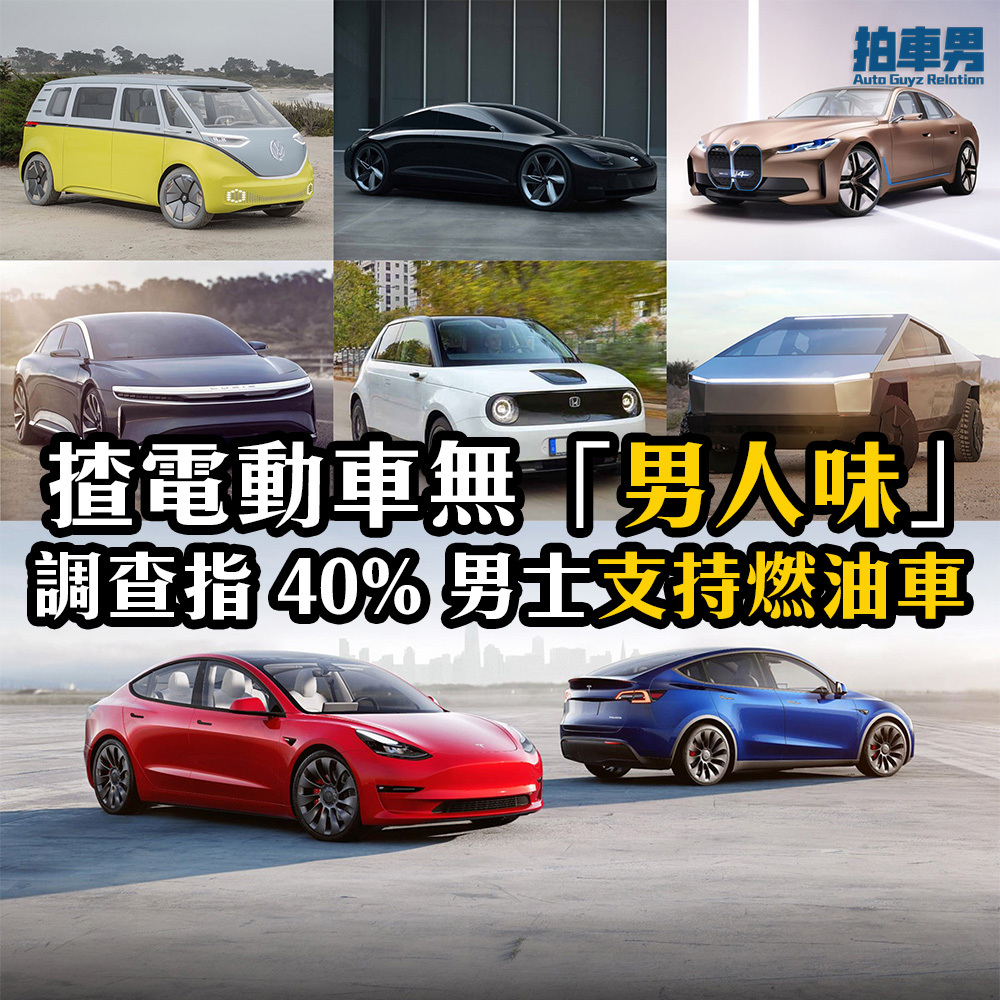
香港油價高企加上電動車稅務優惠,令許多車主都投身到電動車市場,可是世界其他地方還是有很多用家不願意考慮購買電動車,這涉及到多種因素,包括里程焦慮、便利性和駕駛體驗等等。最近,德州大學奧斯汀分校的研究員 Michael Parent 指出,“男子氣概”也是影響人們是否考慮購買電動車的因素之一。他指出,許多男性消費者認為駕駛電動車會損害他們的男性形象。
Michael Parent 與居住在美國的 400 名男性消費者進行了一項調查。當被問及他們會選擇汽油車、柴油車、油電混合車或電動車時,有 40% 的受訪者將電動車列為最差的選擇之一。其中一個主要原因是男性消費者認為選擇電動車會影響他們的男子氣概,這影響了他們對電動車的選擇。
心理學家 Louise Goddard-Crawley 表示,強勁的引擎聲音和卓越的性能通常與男性氣質密切相關,但電動車的安靜特性在無形中會給人帶來弱勢的感覺,這導致一些強烈認同傳統性別觀念的消費者對電動車感到抵制。
同時,Michael Parent 也指出,在某種程度上,當消費者做出購買決策時,他們通常會考慮購買產品如何反映他們的個人身份。然而,值得注意的是,該研究尚未提供確鑿的數據支持,參與調查的 400 名美國男性是根據假設進行回答的,實際購車時的決策可能會有所不同。
可是在香港,答案應該會大不同吧?
精選產品:

BlackVue - DR750X-2CH Plus 行車記錄器 連上門安裝 (舊車 CAM Trade in 專屬優惠)點我購買
優惠價:HKD 2,600 (原價:HKD 3,580)
High fuel prices in Hong Kong, coupled with tax incentives for electric vehicles, have led many car owners to embrace the electric vehicle market. However, in other parts of the world, there are still many consumers who are hesitant to consider purchasing electric cars. This reluctance stems from various factors, including range anxiety, convenience, and the driving experience. Recently, Michael Parent, a researcher from the University of Texas at Austin, pointed out that "machismo" is also one of the factors influencing people's willingness to consider electric cars. He noted that many male consumers believe that driving an electric car would compromise their masculine image.
Michael Parent conducted a survey involving 400 male consumers living in the United States. When asked to choose between gasoline cars, diesel cars, hybrid cars, or electric cars, 40% of the respondents rated electric cars as one of the worst choices. One major reason for this is that male consumers believe that opting for an electric car would affect their sense of masculinity, influencing their choice of vehicle.
Psychologist Louise Goddard-Crawley explained that the strong engine roar and superior performance are often closely associated with masculinity. However, the quiet nature of electric cars can inadvertently make people feel less powerful, leading some consumers who strongly identify with traditional gender norms to resist electric vehicles.
Additionally, Michael Parent pointed out that to some extent, when consumers make purchasing decisions, they often consider how the purchase reflects their personal identity. However, it's worth noting that this study has not provided definitive data to support these claims. Furthermore, the 400 American male participants in the survey answered based on assumptions, and actual car purchasing decisions may differ.
However, the response in Hong Kong is likely to be quite different, isn't it?








